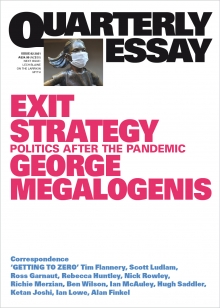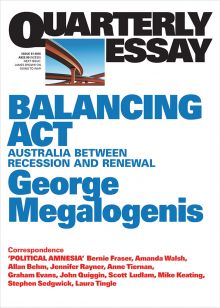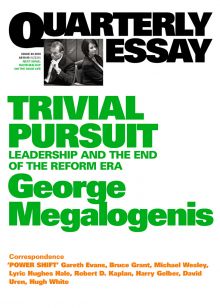Between the fires and the plague, Scott Morrison had no choice but to adapt his style of leadership. But does he have an exit strategy for Australia from the pandemic?
In this original essay, George Megalogenis explores the new politics of care and fear. He shows how our economic officials learnt the lessons of past recessions and applied them to new circumstances. But where to from here? Megalogenis analyses the shifting dynamics of the federation, and the appeal of closed borders. He discusses the fate of higher education – what happened to the clever country? And he asks: what should government be responsible for in the twenty-first century, and does the Morrison government have the imagination for the job?
“Morrison has no political interest in talking about the future. But passivity does not reduce the threat of another outbreak. In any case, the future is making demands on Australia in other ways.”








